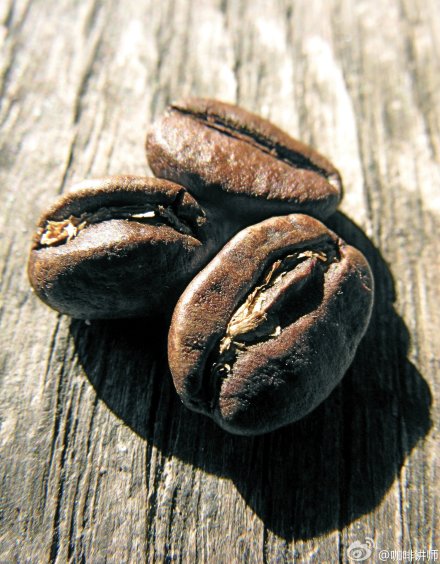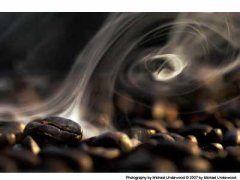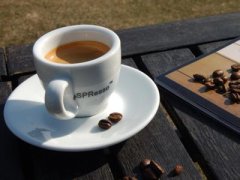What is the knowledge of Fairtrade Coffee
Coffee has become a familiar sight in British supermarkets and cafes. Its motivation is laudable because it guarantees the lowest price for coffee growers, and it would be callous to argue against giving them a better price-117m of fairtrade coffee was sold in britain in 2007.

Harriet Lamb, executive director of the Fairtrade Foundation, said: "Fairtrade's partnership with Starbucks is great news for growers and coffee lovers and will wake up the industry." But there are many in the coffee industry who are convinced that Fairtrade has failed to solve growers 'problems. The crux of the problem is that selling coffee on a fair-trade basis exposes growers to risks in distant commodity markets. A fair trade contract guarantees that the grower receives at least the minimum price set by Fair Trade Labelling International. If the market price is higher than this guaranteed price, the grower will receive the higher price, plus a premium of 10 cents for 1 pound of Fairtrade coffee.
It is no surprise that coffee growers are market savvy; small growers listen to the latest news on hand-cranked radios, while blackberries are ubiquitous to large farmers, just like anywhere else in the business world.
Above DR Wakefield & Co's offices in Southwark, south London, two overhead screens show the latest quotes from the New York and London exchanges. The company is a leading importer of Fairtrade coffee in the UK and Managing Director Simon Wakefield grew up in the family business. He visited his first coffee plantation when he was six and is proud that Fairtrade coffee has gone from being an obscure product to becoming mainstream.
Fairtrade is not the only label on the market. Other "certified coffees" are those grown organically and beans certified by the Rainforest Alliance, a program designed to protect the environment. Certified coffee sales now account for 70% of DR Wakefield's turnover. DR Wakefield argues that disadvantaged farmers benefit from fair trade premiums, and there is anecdotal evidence in favour of such schemes.
But Wakefield took the market report and said,"Wouldn't it be nice if there was some news about coffee that affected the coffee market?" The volatility of commodity markets has always been a drag on the fairtrade label.
Some coffee experts believe that coffee drinkers must be educated in the future. We are used to buying Fairtrade coffee because it is the "right" way to do it without considering quality. The next step might be to encourage us to buy and taste coffee the way we buy wine-to find specific growing locations and growers, and to learn to taste the differences. The idea would help create a better, more sustainable business model for growers, encouraging them to provide quality coffee and building supply chains that capture premium prices and avoid uncertainty in commodity markets.
One of the champions of this new business model is a former commodities trader. Stephen hurst was goldman sachs's executive head of coffee trading for 11 years. He left commodities markets in 1996 by founding Mercanta, a coffee-importing company. Mercanta's goal is to provide professional coffee roasters with coffee beans obtained directly from growers. He trades in the top 2 to 3 percent of coffee production, and values long-term buying relationships-and crucially, the price paid-that correlate with product quality. Last year, Mercanta paid an average price 20 per cent above the Fair Trade Price Baseline for coffee combining origin, grade and variety factors.
Hearst was a passionate advocate of the Cup of Excellence contest. The competition began in 1999 and is currently held in nine coffee-producing countries, from Brazil to Rwanda. Growers submit their best products for tasting by an international professional jury (known in technical terms as "cupping"). The winning product is then sent to an Internet auction, where it will fetch a high price (usually more than 10 times the guaranteed fair trade price-the top product auctioned in Guatemala in 2008 fetched 75 times the commodity market price at the time).
Simon Wakefield is skeptical of the detailed tasting instructions accompanying the "Perfect Coffee" auction: "It's a clever marketing move. But can you really tell me you can taste the difference after the beans have been roasted, ground, stored on someone's kitchen cabinet, made into coffee, added milk and sugar?"
At present, there are only a few places where interested coffee drinkers can begin self-education, most notably Monmouth Coffee Company, which has two branches in London's Covent Garden and Borough Market.
Monmouth coffee buyer A. J. Kinnell believes specialty roasters don't have to be elite. "If you spend an hour in the store, you'll see all kinds of people coming in and out," she said. People come to us because they like the taste of coffee." It's still a minority interest, but it's a treat. At the busy Monmouth shop in Boro Market, you can sample several coffees at once and buy your favorite beans to take home.
Important Notice :
前街咖啡 FrontStreet Coffee has moved to new addredd:
FrontStreet Coffee Address: 315,Donghua East Road,GuangZhou
Tel:020 38364473
- Prev

Basic knowledge of boutique coffee beans definition of hand-selected coffee beans
Hand selection: is the step of removing impurities and bad beans attached to delicious coffee beans. Coffee beans are often mixed with foreign bodies, such as stones, sawdust, pieces of metal, grains of soil, fruit of trees, and sometimes coins and glass. In coffee production areas, specific gravity bean selector (using wind power to classify according to particle size and weight) or electronic bean selector (removing defective beans according to color) will be used to prevent it.
- Next

What is the term for boutique coffee?
We often see some coffee terms in coffee books and coffee training, so what do these terms stand for? Acidity [acidity] is the acidity and strong quality of all coffee grown on the plateau. The acidity referred to here is different from bitterness or sour (sour), and has nothing to do with pH, but a function that promotes coffee to boost the mind and clear the taste.
Related
- Beginners will see the "Coffee pull flower" guide!
- What is the difference between ice blog purified milk and ordinary milk coffee?
- Why is the Philippines the largest producer of crops in Liberia?
- For coffee extraction, should the fine powder be retained?
- How does extracted espresso fill pressed powder? How much strength does it take to press the powder?
- How to make jasmine cold extract coffee? Is the jasmine + latte good?
- Will this little toy really make the coffee taste better? How does Lily Drip affect coffee extraction?
- Will the action of slapping the filter cup also affect coffee extraction?
- What's the difference between powder-to-water ratio and powder-to-liquid ratio?
- What is the Ethiopian local species? What does it have to do with Heirloom native species?

